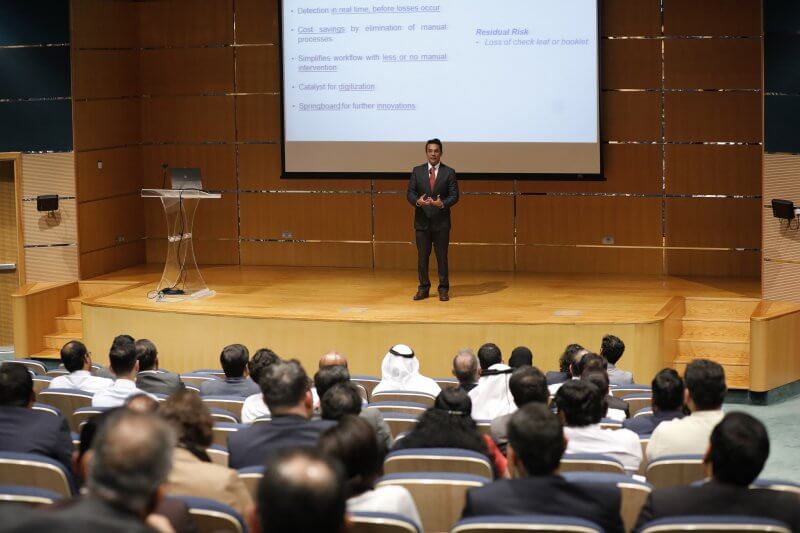UAE Banks Federation (UBF), in coordination with UBF IT Committee, has hosted a workshop dedicated to UBF member banks to address a new and innovative approach in combatting cheque fraud.
The workshop identified proposed improvements to the current cheque verification process, specifically how changes could be made to limit incidences of fraud and support the nation’s move towards becoming a cashless society.
Counterfeit cheques currently expose banks, businesses and customers to financial, reputational and legal risks. Sophisticated printing technologies have pushed incidences of fraud to increase, and UBF member banks are keen to work together to combat this risk.
During the workshop, UBF speakers stated that, going forward, member banks would increasingly seek to make use of QR codes to improve cheque security, introducing enhanced encryption technology to discourage fraud. The new approach will see individual cheques allocated a random number that can then be read electronically during an automated validation process. The number is unique to the specific cheque and will ensure that only legitimate cheques will be honored by banks.
AbdulAziz Al Ghurair, chairman, UBF, said, “We are committed to enhancing the security of the UAE financial system and today’s announcement is further evidence of our collective desire to tackle the issue of cheque fraud.
“By introducing technology that allows us to detect problems in real time, we are confident that we can lessen the impact of fraud on our customers. In addition, these changes will improve operational efficiency, reduce costs and lay the foundations for further innovation that will benefit the banking sector.”
During the meeting Zubair Ahmed, Chairman of UBF IT Committee, and Chief Information Officer, Emirates Islamic Bank; Barid Neogi, Chairman of UBF Operations Committee, and Senior Vice President Group Operations Governance & Business Support, Emirates NBD; and Naimish Shah, SVP, Head of Innovation and Emerging Technology, Emirates NBD, delivered presentations on how to implement these plans addressing the impact they will have on the industry.
The new automated approach is expected to use a cryptographic protocol, a one-way identifier – called a HASH – which uses an algorithm to combine a random number with magnetic ink character recognition (MICR) data. HASH is completely random and unique to the individual cheque and acts as a secure secret key for the cheque. It is not stored anywhere except on the cheque leaf. When the cheque is presented, the QR code will be read from the cheque leaf along with MICR details and passed to the ChequeChain system for validation against the unique HASH. If the value matches the HASH then the ChequeChain system will authorise the cheque.
The workshop witnessed large attendance from IT, Operations and Fraud Prevention divisions from UBF member banks. Moreover, UBF plans to organize further programmes to confirm execution of this initiative with the aim to combat Cheque Fraud in the Banking industry.





